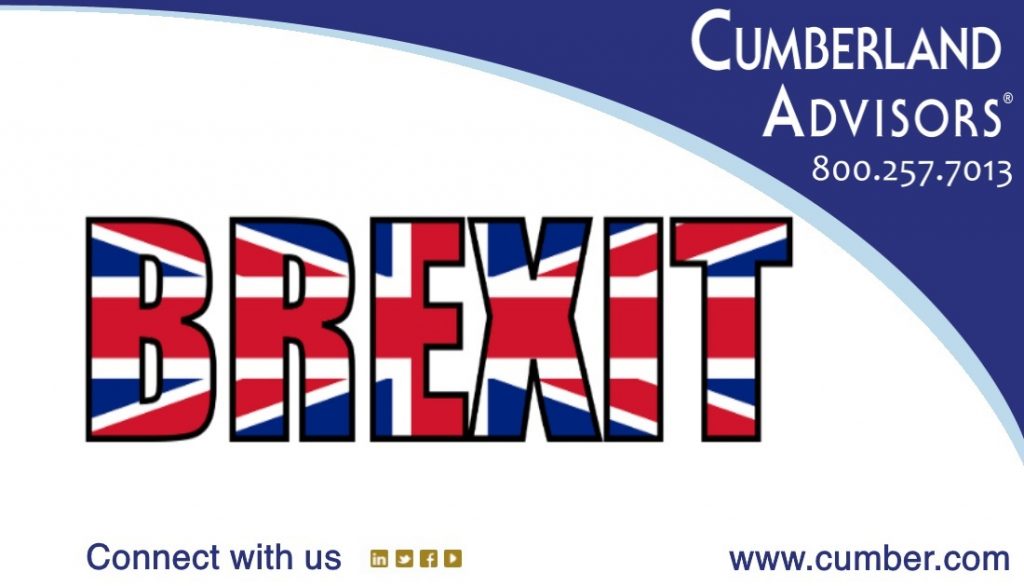Markets welcomed the European Union’s decision in April to push the Brexit deadline back to October 31 in order to provide the UK with more time to reach agreement on the terms of a withdrawal treaty.
The risk that the UK would fall into an unwanted “hard” no-deal exit appeared to be substantially reduced. However, since that decision, there has been virtually no evidence of progress in the talks between the two principal political parties, Conservative and Labour. Political paralysis in London is a main cause of what the head of the European Central Bank, Mario Draghi, has called the “persuasive uncertainty“ affecting European markets. Both parties are severely split between those wishing to leave the European Union and be free of all EU obligations and those wishing to remain a member of the EU or at least be in a close trading relationship, a customs union, along with the obligations that arrangement would entail.
Last week’s local elections in England have shown the voters’ frustration with this situation, with both of the leading parties suffering major losses. The BBC projects that the Conservatives lost 1300 councilor seats and Labour lost 80, whereas the Liberal Democrats gained 700 seats, the Independents 600, and the Greens 194. The wave of rejection rising against the two major parties looks likely to become more evident in three weeks, on May 23, when the UK participates in the election of members to the European Parliament. There will be an important new party contesting in that election, the Brexit Party, which is unconditionally for leaving the European Union. It will attract strong “leave” supporters from Labour and even more from the Conservative Party.
Some three years have slipped by since the referendum vote to leave the EU, yet we are still unsure whether Britain will finally be able to make its mind up by October 31. Many possible developments in the next six months, such as a change in leadership of the Conservative Party, a new general election, or even a second referendum, could affect the outcome. With the nation’s being split on the issue and feelings on both sides running high, a period of political turmoil and continued uncertainty looks likely. If a compromise deal is struck, it probably will be a “soft Brexit” including some form of customs union and perhaps an agreement to follow EU standards on workers’ rights and environmental standards. Should October 31 arrive with no agreed deal, the EU will be faced with the difficult choice of further extending the deadline or permitting the UK to fall into a no-deal “hard Brexit.”
The most important effect of the continuing uncertainty about the UK’s future relationship with the EU is its impact on investment decisions. The British economy is deeply integrated with the rest of the EU, with the UK’s closest trading partners in the EU being Ireland, the Netherlands, and Belgium. The Economist notes that every day “nearly 3,400 lorries are ferried between Rotterdam’s port and Britain.” Finance, direct investment, and migrant labor flows are also important elements of this integration. It is understandable that many firms are postponing investment decisions or in some cases assuming the worst and relocating some operations to other EU countries. The effects on the City of London’s business could be severe. For example, in March the EU regulators announced that if the UK should leave the EU without a deal, European banks and asset managers would have to trade a number of UK stocks, including major ones like Royal Dutch Shell and Vodafone, in the EU rather than in London.
Financial investors also are being affected by Brexit uncertainty. The Financial Times reports that Morningstar’s research reveals that investment funds based in the UK experienced outflows in the 12 months to the end of March totaling 30 billion pounds as investors switched out of UK assets and into EU-regulated products. These flows also included internal transfers from the UK to the EU by several asset managers in order to protect their EU business.
It is not surprising that UK stock prices have been underperforming. For example, over the past three years, when the SPDR S&P 500 ETF, SPY, gained an average annual return of 14.08%, the iShares MSCI United Kingdom ETF, EWU, gained an average annual return of just 4.79%. Thus UK stock valuations are becoming relatively attractive – but only if one does not consider the Brexit risk. The FTSE price/book ratio is now 1.7 times (compared with 3.5 times for the S&P 500) and has attracted the return of some international investors this year. At Cumberland Advisors, however, we continue not to include UK-specific ETFs in our International and Global portfolios because we consider the risks knit into Brexit uncertainties to be too high.
Bill Witherell, Ph.D.
Chief Global Economist & Portfolio Manager
Email | Bio
Sources: Financial Times, Wall Street Journal, The Economist, Goldman Sachs, etf.com, Morningstar
Links to other websites or electronic media controlled or offered by Third-Parties (non-affiliates of Cumberland Advisors) are provided only as a reference and courtesy to our users. Cumberland Advisors has no control over such websites, does not recommend or endorse any opinions, ideas, products, information, or content of such sites, and makes no warranties as to the accuracy, completeness, reliability or suitability of their content. Cumberland Advisors hereby disclaims liability for any information, materials, products or services posted or offered at any of the Third-Party websites. The Third-Party may have a privacy and/or security policy different from that of Cumberland Advisors. Therefore, please refer to the specific privacy and security policies of the Third-Party when accessing their websites.
Sign up for our FREE Cumberland Market Commentaries
Cumberland Advisors Market Commentaries offer insights and analysis on upcoming, important economic issues that potentially impact global financial markets. Our team shares their thinking on global economic developments, market news and other factors that often influence investment opportunities and strategies.


